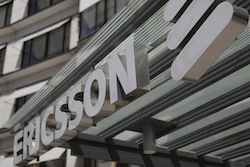Ericsson has demonstrated a new mobility-based policy in Tokyo to show how user experience can be handled in very congested areas.
The vendor’s new policy connects its serving GPRS support node mobility management entity (SGSN-MME) with its Service-Aware Policy Controller (SAPC). By offloading the gateway, Ericsson said this new policy can improve a user’s experience by reducing signalling traffic.
Ericsson held the test during rush-hour in Tokyo in partnership with Softbank. Yoichi Funabiki, Director, Mobile Network Planning Division, Core Network Department SoftBank Mobile, commented: “To accommodate our subscribers and data traffic growth, it is critical to optimise our spectrum. By enabling us to dynamically allocate the best radio resources on a per-user, per-terminal basis, Ericsson Mobility-based Policy has the potential to increase our network flexibility while reducing signalling traffic network wide – this efficiency drives additional opportunities to improve both the user experience and network performance.”
Ericsson already supplies Softbank with its LTE radio access network and its EPC. The vendor was also chosen by Softbank to set up and integrates its VoLTE service.
Jan Signell, Head of Region North East Asia, Ericsson, said: “Ericsson and SoftBank Mobile work together to consistently enhance the performance and user experience on their mobile network. With this demonstration of Mobility-based Policy, an innovative feature of Ericsson’s Evolved Packet Core, we continue to strengthen our strategic partnership with SoftBank Mobile.”
Read more:



